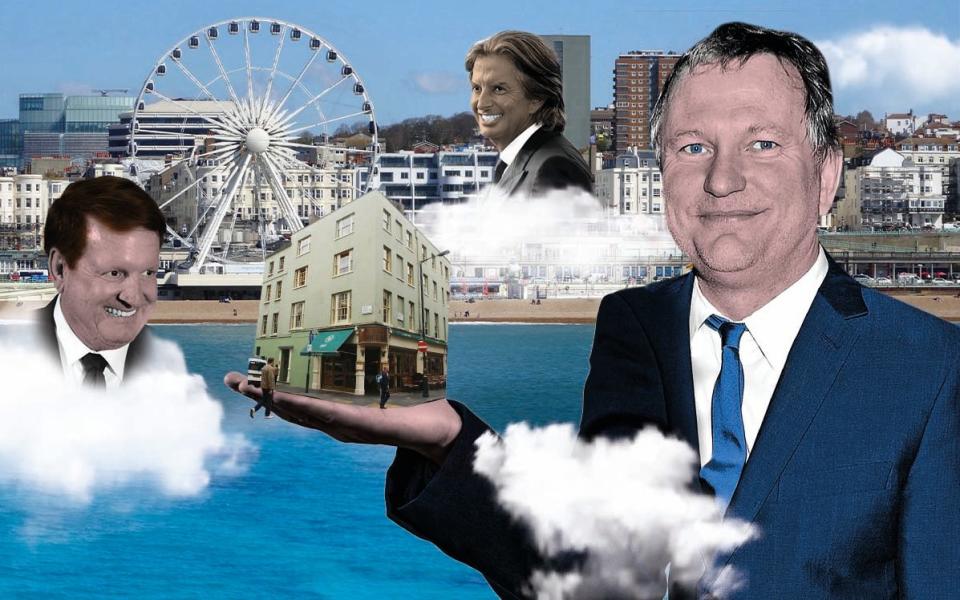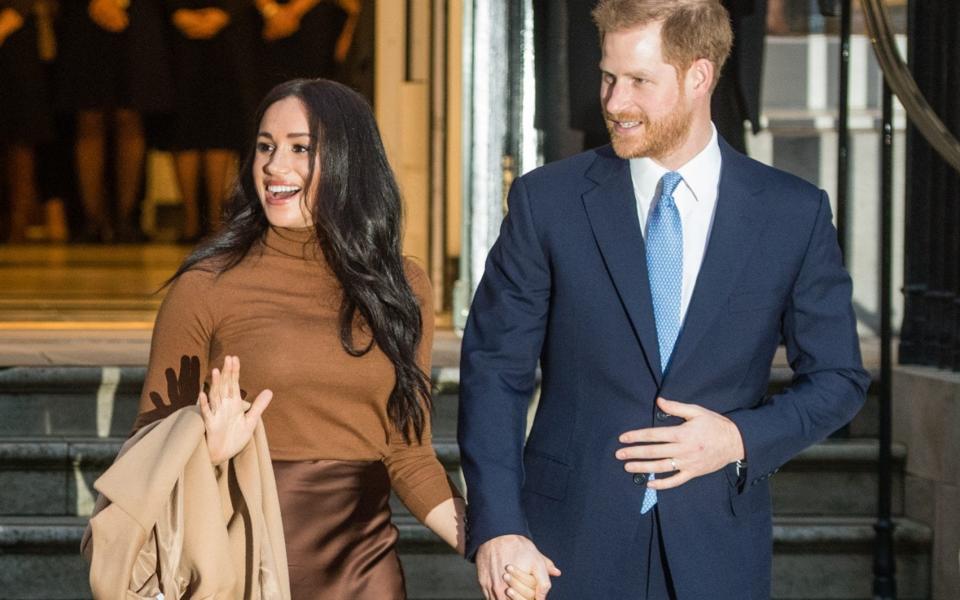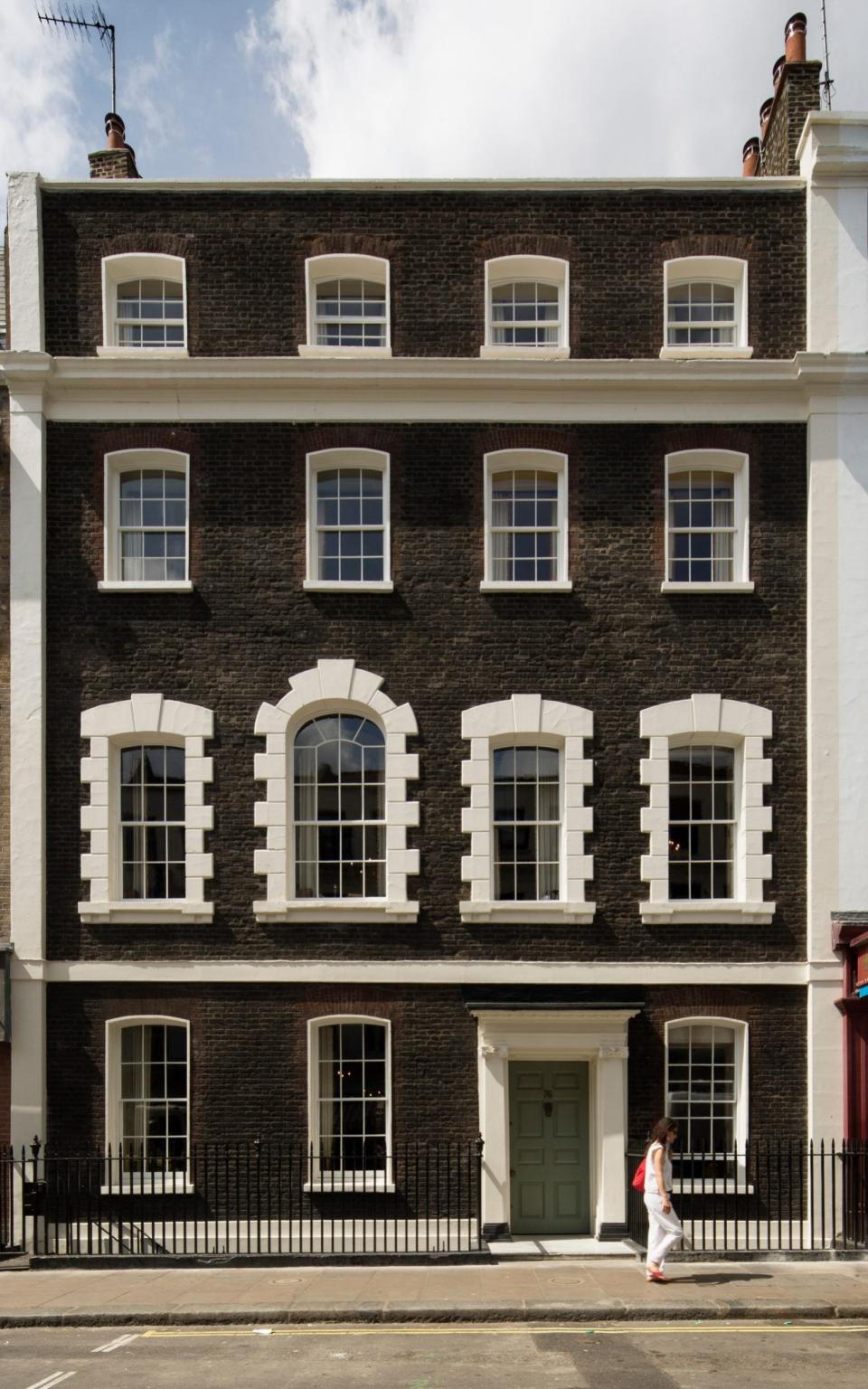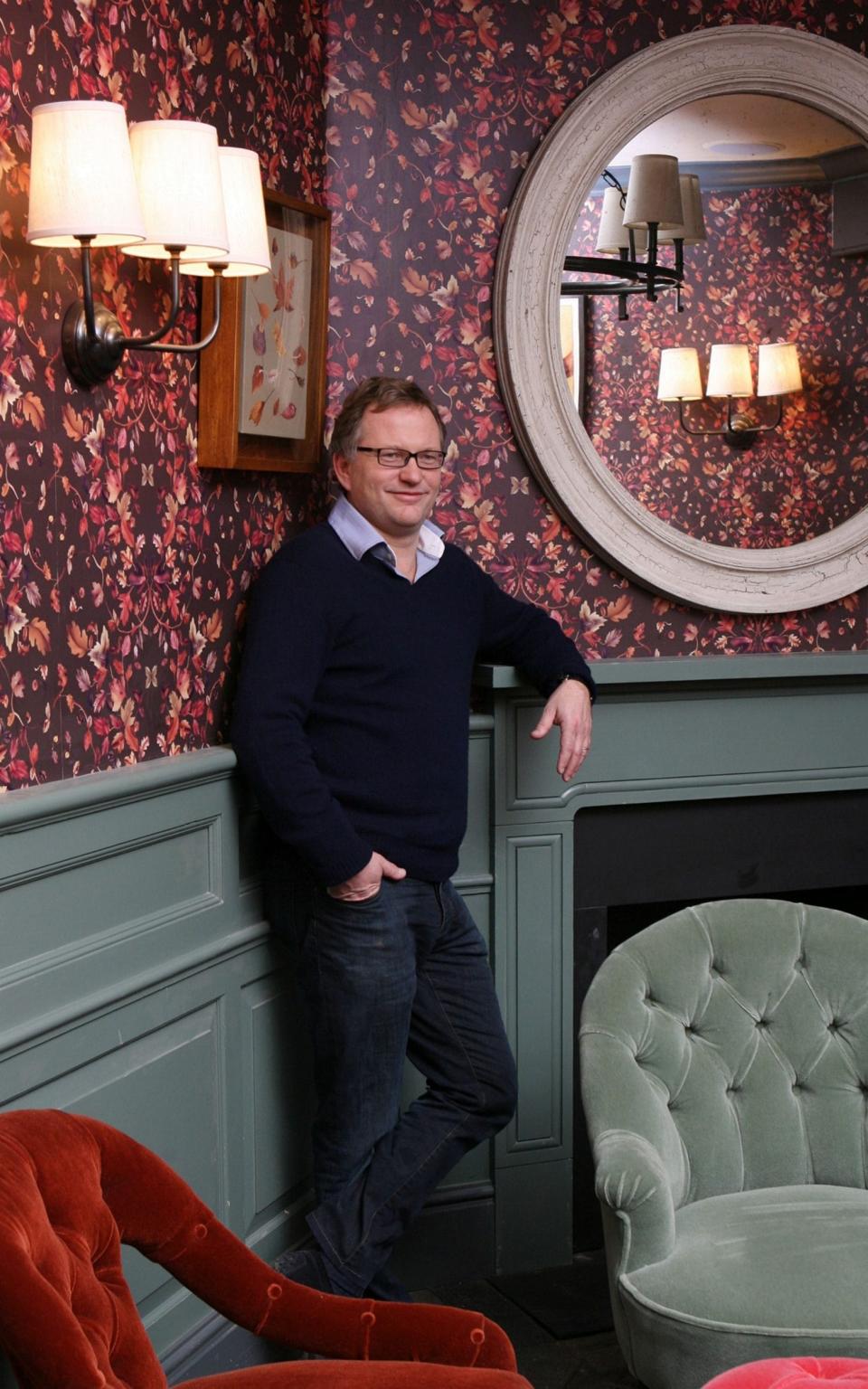Founder gets Soho House back in order - with a little help from his friends

Nick Jones, the founder of Soho House, wants to be friends with everyone. Members and employees, its suppliers, landlords and investors. Even in some of the toughest times he has ever known, the private club impresario has no time for acrimony.
“I’m in the hospitality business, so you better not be confrontational,” Jones says in the boardroom of Soho House’s new offices on the Strand. “I would much rather get on with people, even those I’ve stopped doing business with.”
The pandemic has meant Jones, 57 and married to the broadcaster Kirsty Young, has been forced to test quite a few friendships, however. Soho House has bid farewell to about 1,000 of the 8,000 global staff it began the year with. It has cut ties with half its suppliers. Landlords have been asked for rent holidays.
Meanwhile, the investors who have fuelled the chain’s rapid international expansion over the last few years have been called on again to underpin Soho House’s stretched finances.
For Jones, a self-described “pleaser” of people, it has been an overdue reckoning with the realities of big business. Soho House has to grow up fast.
“It’s the first time in my life, in 25 years of founding and running Soho House that I have been on a pause button,” he says. “I’ve been able to look at all the things we weren’t doing quite right and had time to put them right.”
The original Soho House, on Greek Street at the heart of London’s media and advertising scenes, opened in 1995 and quickly attracted a celebrity clientele that in more recent years has included the Duke and Duchess of Sussex.

The success created a launch pad for Jones, a former marketing manager at the Grosvenor House Hotel in Park Lane, to expand initially with outside backing from Richard Caring, the clothing importer and longtime associate of Sir Philip Green.
Today Soho House has 28 clubs scattered from Malibu on the US west coast to Hong Kong, via the Cotswolds, Mykonos and Mumbai. It also owns two London cinemas and a variety of standalone restaurants.
The advance left serious inefficiencies in its wake, Jones merrily concedes.
Before coronavirus, Soho House had launched a campaign of simplification and cost savings. It brought in Andrew Carnie, from the American clothing and homeware retailer Anthropologie, as president, to work alongside Jones and impose more discipline on mundane bills including laundry, staff uniforms and electricity.
“Nick has this great vision that has made Soho House so successful,” says Carnie, a veteran of Argos and House of Fraser. “I’m in the weeds a bit, in the background.
“It’s not rocket science. My job is to take his vision and create a strategy to deliver it across the whole company.”
Suppliers have felt the squeeze. One long-standing grocer that fell victim to the cull says it almost went bust, as Soho House was its main client.

The pandemic and its lockdowns have acted as an accelerant to existing cost-cutting, but emergency measures have also been required. Here, Jones’s people skills have proved invaluable.
He says: “We have very good relationships with all our landlords, I’ve known them all and every deal I’ve done has always been a personal deal.
“But that doesn’t mean we have paid everyone. We didn’t refuse to pay either. We sat down and negotiated deferment or some rent-free months. We’re pretty up to date.”
The pandemic has triggered an almost total collapse in underlying profitability for Soho House, a business that on more traditional accounting measures was already heavily loss-making. In 2018, the most recent year for which accounts are available, after covering its borrowing costs, the pre-tax losses topped £65m on turnover of £432m.
This year is likely to end much further into the red, even after the relief of London exiting lockdown in Tier 2.
Jones says he had budgeted for earnings before interest, tax, depreciation and amortisation to climb to £85m. He now expects just £5m.

The crisis is compounded by Soho House’s history. Although it has wealthy owners, led since 2012 by Ron Burkle, a Los Angeles-based retail billionaire, it has run up costly debts in the hundreds of millions of pounds in its international expansion.
It entered the pandemic owing £350m to the British private equity firm Permira, via a loan that yields 7pc interest and was due for repayment next year. Fortunately, Jones counts Permira as friends too, and they have extended the maturity of the debt to 2023.
“They’re more like partners,” he says. Permira is still counting on Soho House to catch up on its interest payments, however.
“It would be careless to say you have no concerns,” says a firm insider. “But the quality of the company is so high, memberships have held up well, it has a strong management team and a global footprint. We are confident they’ll come through well.”
Jones is confident, too, that when the pandemic eases his members and underlying profitability will return. In the meantime he has hoovered up taxpayer support including furloughing everywhere possible and $22m (£16.5m) in crisis loans backed by the US government.
“Once everything switches back on and there is light at the end of the tunnel all those worries about ‘is there too much debt against the profit’ will go away,” he predicts. “If we were desperate for cash, we would let in our huge waiting lists, you could just go straight to that and let them in. We have about 50,000 people on our waiting lists.”
Burkle, who dials in via Zoom most Mondays and “fully loves the business”, has continued to back Jones and his team. In summer the billionaire led an $100m equity fundraising, which valued the business at $2bn. Jones and Carnie say it was planned long before lockdown.
Meanwhile Caring remains committed despite challenges for his own restaurant empire and David Simon, a US property billionaire who helped Soho House pay off £105m of bank debt last year to become a shareholder “has become very close”, says Jones.
His mind is already turning to more openings, and another potential fundraise by March, “then we’re done”.
Soho House has been opportunistic during the pandemic, agreeing deals with pressured commercial landlords for new clubs. Jones reels off a list of planned openings that include the Tulum in Mexico, a fashionable resort overlooked by Mayan ruins.
Deals have been done in Palm Springs in the California desert and further north in Napa Valley, wine country. A long-delayed outpost in Brighton will open next summer, Jones pledges.
As well as keeping a lid on costs, Carnie’s task is to drive a digital expansion to match, via the “Shapp” (Soho House app). As part of a management overhaul that makes the top team “45pc diverse”, Carnie explains, Soho House now has a chief technology officer. A new finance chief, Humera Afzal, starts on Tuesday.
It is all part of Jones’s plan to be ready for a post-pandemic party. “I think we’re going to get back to the Roaring Twenties. My logic is a lot of money has not been spent and is sitting somewhere. I think things will come back.”
